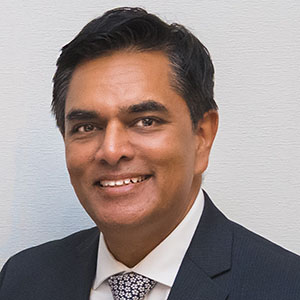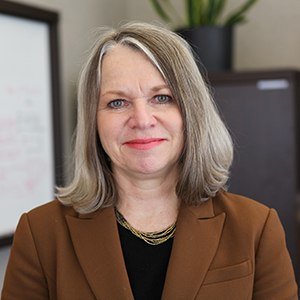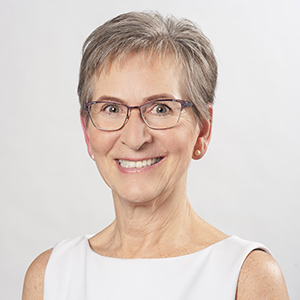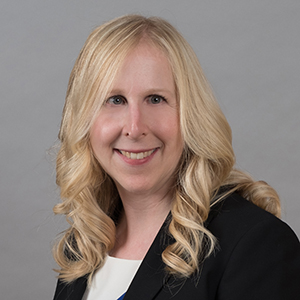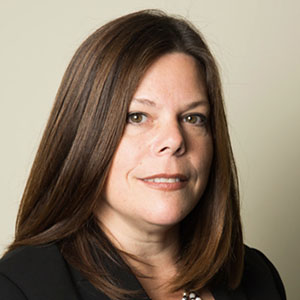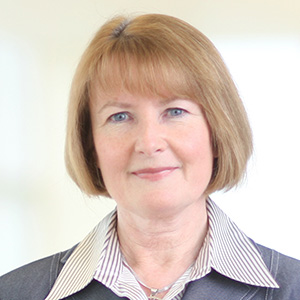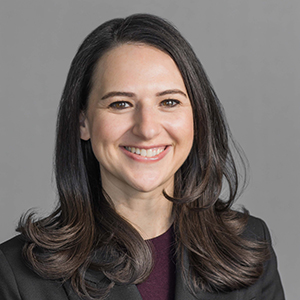September 9th – November 26th
Schedule
Sessions and speakers are subject to change.
September 9-10
Modernizing Practice Standards in Response to Disruptive Technologies
In an era of emerging disruptive technologies, e-commerce, landmark legal rulings and changing preferences on how patients access their health care, there is an imperative for regulators to adopt a nimble approach. Direct to consumer initiatives, AI and remote practice and more, all pose the question as to how regulators can respond in a nimble fashion to a shifting landscape and provide guidance to their registrants and ensure that quality care continues to be provided, inter-professional collaboration is supported and above all, the public interest is protected.
In this panel discussion, three Colleges: the College of Optometrists of Ontario, the College of Opticians of Ontario and the Royal College of Dental Surgeons of Ontario will discuss how they are responding to disruptors.
The Colleges of Optometrists and Opticians will describe the process they have undertaken to update their Standards including the challenges and benefits of collaboration between two colleges with overlapping scopes of practice. We will describe the strategies employed in overcoming the fear of emerging technologies, resistance to change and the tension between quickly changing public expectations and the slow rate of change amongst the profession. We will reflect briefly on the outcome of the legal challenge undertaken by the two Colleges in the case that dealt with the online dispensing of eyewear across provincial borders and lessons learned regarding the collaborative process of updating the Standards. We will discuss the Colleges’ efforts to continually scan the environment to understand the implications of new and emerging technologies on registrants and the public and to ensure that the Standards keep pace.
The Royal College of Dental Surgeons of Ontario will share their experiences and perspectives regarding disruptive technologies such as direct-to consumer orthodontics and the steps it is taking to understand and respond to this new approach to practice.
Introductory remarks by Executive Director, Premier Sponsors Yardstick & ProctorU, and CNAR Chair Kevin Taylor.
Surviving the Monster Discipline Hearing that Consumes All of Your Resources – and Sanity
For a small(er) regulator, a long and vigorously contested discipline hearing, along with the consequent appeals, motions for a re-hearing, etc., can consume much of your time, energy, money and human resources. If such a mammoth hearing cannot be avoided, how can regulators manage the administrative and communications aspects of the process? In particular:
1. What does a monster hearing look like – can you see it coming? What factors contribute; e.g. multiple complaints, member mental health concerns etc.
2. What budgetary and human resource issues arise – is it possible to develop a realistic budget? The value of financial reserves. Can you plan for the human resources toll? How do you maintain the sanity of the team involved?
3. Tools and ideas for complex document, disclosure and exhibit management.
4. Who is in charge? What is their role?
5. Managing communications, print and social media.
6. Conducting a post-mortem.
Each of the speakers has been involved in cases that test the boundaries of what regulators can reasonably expect in complaints and disciplinary hearings and have the scars, along with the consequent wisdom and experience, to prove it. This session will be conducted in a casual interview format to permit the exchange of ideas between all of the speakers and, hopefully, encourage discussion from attendees. Given the increasing number of hotly contested cases, it is expected that this session would appeal (no pun intended) to a significant contingent interested in either avoiding or managing their next nightmare.


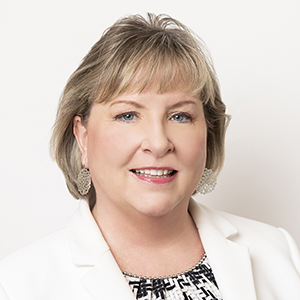

September 16-17
Crossing Thresholds: Documenting Professional Departures in Early-Career Pharmacists (New Brunswick)
The research documentary film, Crossing Thresholds explores the intention of students to not practice the profession they are trained to practice. A portion of the film will be screened during this session.
The film follows students and their future-selves over five years of their early professional lives. Research subjects were Ontario pharmacy students who self-identified as planning to potentially abandon their chosen profession of Pharmacy. Although subjects were in the pharmacy profession, the results are likely generalizable to other professions. Collected student footage was viewed by experienced pharmacists who had departed the profession years prior and subsequently academics with knowledge of professional departures. Participants provided on-camera reflections on the departing students’ original interview footage. Through the sharing of all three groups’ footage, participants gained insight into their own and others’ experiences with the departure phenomenon. The qualitative research project is novel in that the results are disseminated via film rather than traditional print articles. Themes of alienation, uncertainty, hope and frustration are portrayed in detail within the Crossing Thresholds film.
Regulators should be aware that a certain subset of their membership consists of early career professionals who have significant career concerns with the work of their chosen field. These individuals may pose future challenges for regulators in terms of isolation within their practices, disengagement and mal-adaptive behaviours.
The documentary provides an opportunity to resonate with these resilient, challenged and reflective professionals. Film release is timely given the recent attention to moral distress and burnout in professionals resulting in negative patient outcomes. In times of decreasing resources and increasing professional demands (regulatory, patient, economic), moral distress becomes more prevalent. Participants portrayed in this film are dealing with moral distress in their early career.
Separation of “Church and State”: The Lived Experience (Manitoba)
In 2014 the Manitoba government proclaimed The Regulated Health Professions Act (the “RHPA” or the “Act”) and in 2018 the College of Registered Nurses of Manitoba (CRNM) became the second college and third profession to transition to governance under the Act. To prepare and become eligible to come under the Act, the College of Registered Nurses of Manitoba needed to stop:
1. Collecting fees on behalf of the national nursing association
2. Collecting fees for the professional liability protection provider
3. Cease all activities related to association work or mandate In order to meet those criteria, significant work needed to be done to transfer the first 2 responsibilities to another entity.
Although the College had long ceased association activity, it maintained connections with the national nursing association and the liability protection provider through jurisdictional membership. The College also provided a variety of practice and scholarship awards. Active work begun by a group of volunteer nurses to fill the association gap, and in 2016, a fledgling organization came to life.
Four years later, the Association of Registered Nurses of Manitoba has a voluntary registration rate of approximately 75%, is financially viable and gaining the respect of the profession, government and other stakeholders. This presentation will articulate the reasons why a dual mandate is not compatible with a regulatory body’s credibility or effectiveness. The journey from a dual mandate to two separate organizations within a 5-year period will be discussed, including financial viability, value proposition and the appropriate relationship between the two organizations. It will be of interest to any dual mandate regulator contemplating the necessary steps to move to a single mandate in order to maintain the public’s trust in regulating their profession.
September 23-24
The Mouse and the Elephant: One Small Regulator’s Journey to a Bigger Future (British Columbia)
In 2019, following the announcement of the Cayton Report recommendations in British Columbia, the College of Midwives of BC (CMBC) set out to “get ahead” of impending change; Specifically, the call for the amalgamation of Colleges.
This session will cover the process under which CMBC considered its options and chose a path ahead of government direction, to amalgamate with the BC College of Nursing Professionals (BCCNP). The session will also provide insight into the challenges associated with a smaller regulatory body (7 staff and 500 registrants) amalgamating with a much larger one (160 staff and 60,000 registrants) and its impact on operational, governance and strategic directions for both organizations (and the new one they are creating).
Fireside Foresight: Exploring how Future Trends and Disruptions May Impact Regulated Industries
How might advances in AI change the value and nature of knowledge work? How could changes to the way that people receive and interpret information affect their perception and expectations of professional experts? And what might telework and greater international trade in services mean for regulation of professional activities?
We are living in highly uncertain times and are already seeing some of the trends and disruptions that could affect the work of regulators and those working in regulated professions. Join us for an exciting virtual fireside chat with Eric Ward and CRTO’s Kevin Taylor, who will discuss the Next Digital Economy, the convergence of biological and digital technologies, and the future of social connections and sense-making with an eye to the potential impact on regulators. They will also help you think through orienting your work to better adapt to new disruptions and unpredicted changes.
Eric is the Senior Director of Foresight at Policy Horizons Canada, the Government of Canada’s centre for strategic foresight. Policy Horizons helps the federal government develop future-oriented policies and programs that are robust and resilient in the face of disruptive change.
September 30 - October 1
Restoring Confidence: Some Lessons Learned from the Recent Transformation of the Ordre des ingenieurs du Quebec (QIC) (Quebec)
• Develop a common vision (strategic plan)
• Strengthen the management team and mobilize employees
• Proactively and transparently communicate the ambitious targets that have been set and the results that have been achieved
• Develop and maintain closer ties with stakeholders
Kathy Baig and her colleagues on the OIQ’s Board of Directors did all of this–and more–to speed up the organization’s transformation. The result? In just 36 months, the confidence of the government and the public were restored. She will briefly talk about how the OIQ strengthened its public protection mechanisms, including:
• disciplinary actions (inquiries and sanctions);
• prevention efforts (professional inspections, continuing education);
• the admission process (new program for acquiring the engineer title, new regulation that eases access for internationally trained professionals.
Any organization can undergo a crisis of confidence like the one that the OIQ and the engineering profession recently experienced in Québec. Kathy Baig will share some useful lessons and advice that your organization can apply if it ever goes through this type of crisis.
Time Flies When They’re Having None: Implementing Canadian Competencies as an Alternative to Time-Based Local Experience
Over a five year period in a collaborative and iterative process involving all provinces and territories, provincial and federal governments, immigrant serving agencies, employers and practicing professionals, a group of engineering admissions officials across Canada developed its answer to the Ontario Human Rights Commission (OHRC) recommendation to removing the time-based Canadian experience barrier and using competency-based methods to assess an applicant’s skill and ability.
Extensive stakeholder consultation resulted in the identification of four key competencies that are distinct to the Canadian Environment and should be demonstrated by all applicants for professional licensure in engineering; whether they have experience in Canada or not. A Working in Canada Seminar, supplemented by learning materials was also developed to provide an online bridging program to teach and test understanding of the four Canadian Environment competencies.
With the pilot program completed, plans are to incorporate the competencies into the pan-Canadian competency-based assessment framework for engineering experience that has been modeled or adopted by six Canadian engineering regulators and is being studied by others.
The speakers will take you through the process of development of the Canadian Environment competencies, the bridging program and the assessment method, including the catalysts and breakthroughs that allowed them to achieve this solution. They will demonstrate the resulting progressive guidance and robust and transparent assessment of Canadian Competencies for those without work experience in Canada that allows all qualified applicants to meet a minimum level of competence for practice in Canada.
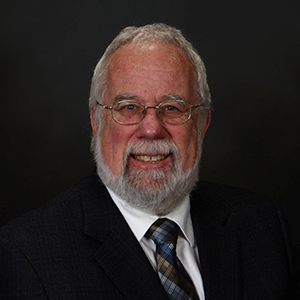


Tina Maki, P.Eng, FEC, FGC (Hon.)
Director of Special Projects
Association of Professional Engineers and Geoscientists of Saskatchewan (APEGS)

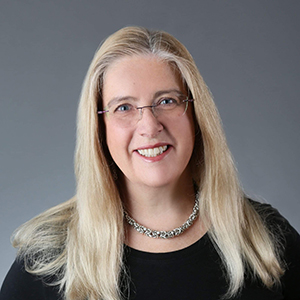
October 7-8
Millennials in Motion: The Changing Regulatory Landscape of the Multi-Generational Workplace
Millennials now make up the largest portion of the Canadian workforce. They are often described as being entitled or expecting too much freedom from their regulators or employers. Although they are determined to achieve work-life balance or integration, millennials have also reported suffering from burnout from an excessive workload.
This panel will discuss the changing landscape faced by regulators in their regulation of millennial professionals and multi-generational workplaces. Regulators must ensure that they remain relevant to a diverse body of professionals, which includes a growing demographic of millennials. Regulators must listen to the practice challenges and needs of young professionals in order to assist them in providing competent and safe care.
This changing regulatory landscape requires regulators to address:
• Technology
• Social media use
• Online advertising and marketing
• Patient or client privacy and confidentiality
• Managing multi-generational differences in the workplace
• Increased awareness of harassment and discrimination
• Increased awareness of mental health issues
• Mobility across borders
• Remote working and freelance roles
• Work-life balance/integration
Confronting the Challenges Concerning Costs: Current Issues in Cost Sanctions Relating to Professional Discipline Proceedings
As Jessie J once sang, “it’s not about the money money money.” But no one can ignore the fact that processional discipline proceedings are costly endeavors for everyone involved. While it may be fairly common for professional regulators to have the power to recoup some of the costs involved in investigating and prosecuting registrants, regulators have recently faced significant legal challenges to cost awards and even to their ability to award costs in the first place.
As complex investigations and prosecutions become more common, we are seeing attempts by regulators to offset these costs through higher cost awards. With increased cost awards has come greater scrutiny of, and creative challenges to, cost provisions and awards.
This session will feature an overview of important cost principles, and lessons learned from recent cases and will cover on-trend topics such as:
• An analysis of the kinds of cases that attract higher costs awards
• Practical tips on building a record to minimize the risk of interference with a costs award
• Considerations for the enforcement of costs awards
October 14-15
The Role of Regulators and Systemic Racism
This session explores issues of race and racialization within regulated professional contexts. Facilitated by Zubin Austin, Professor and Koffler Research Chair at the Leslie Dan Faculty of Pharmacy and the Institute for Health Policy, Management, and Evaluation at the Faculty of Medicine at the University of Toronto, this discussion addresses important issues associated with inclusion, diversity, and equity within regulated professions.

Zubin Austin
Professor and Koffler Research Chair at the Leslie Dan Faculty of Pharmacy, and the Institute for Health Policy, Management, and Evaluation at the Faculty of Medicine
University of Toronto


Braiding Two Worlds: Developing Culturally-Responsive Regulatory Practices in an Era of Truth and Reconciliation
The mandate of the Ontario College of Teachers involves reviewing and accrediting programs of professional education including a number of Indigenous Education programs in several faculties of education across Ontario. Accreditation reviews involve coordination between Accreditation Unit staff, faculties, accreditation panels, and the Accreditation Committee of the Council. These coordinated efforts demonstrate a shared commitment to ensure a high standard for teacher education programs in the province of Ontario.
To further situate the work of accreditation in an era of Truth and Reconciliation, the Accreditation Unit has engaged in a review of its regulatory processes. By engaging Indigenous scholars and knowledge holders to lead us in the development of culturally-responsive processes within existing structures of the regulatory environment, we have engaged members and the broader public to provide input on how to adapt a colonial ‘transactional’ process in an attempt to braid the two world-views.
Working with stakeholders from seven Faculties of Education who offer accredited Indigenous Teacher Education programs, the goal has been to be guided to inform culturally-responsive interview and site visit practices and the overall accreditation experience when working with Indigenous Education programs and participants. Coined as the “Indigenous Writing Collective”, this group, including an Elder-in-Residence from one faculty as well as Indigenous scholars and Indigenous Teacher Education Program coordinators were assembled to collaborate to design questions for site visits and develop practices that will lead to the collection of more salient interview data.
This vital collaboration between the Faculties of Education, Indigenous communities and the Ontario College of Teachers will benefit the interests and experiences of all stakeholders involved in Accreditation processes and should serve as an exemplar of promising reconciliatory practices for the future of self-regulation.
October 21-22
Keynote: Unintended Barriers - Judge Marion Buller
Judge Buller’s CNAR keynote address,“Unintended Barriers,” will examine assumptions, legislation bylaws, and policies to identify how your organization can reduce barriers to participation. Just a reminder this presentation will be followed by a live video Q&A.
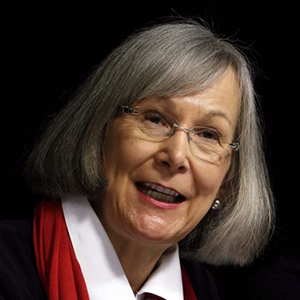
Honourable Judge Marion Buller
Examining the Oversight of Regulatory Investigations in Canada: Recent Trends and Best Practices
In March 2019, the Quebec Minister of Justice appointed the Québec Interprofessional Council to study the framework and function of the “syndic” within the 46 Québec professional colleges. As part of the Council’s work, a study on different frameworks for regulatory investigations across Canada was carried out.
In this cross-country panel, the speakers will present the highlights of the study and explore the similarities and differences in approaches to regulatory investigations across Canadian jurisdictions, with an emphasis on:
• The powers granted to investigators;
• Any training or quality assurance requirements for investigators;
• The role of investigators in screening decisions and decisions to refer matters to discipline;
• Monitoring and oversight of investigators and investigation outcomes.
The speakers will also discuss the status of proposed legislative reforms in Quebec and British Columbia that impact on regulatory investigations, as well as trends and developments affecting regulators across Canada.
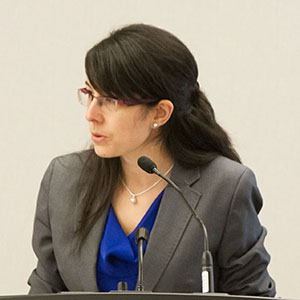
Julie de Gongre
Lawyer
Directrice des Affaires juridiques, Conseil interprofessionnel du Québec

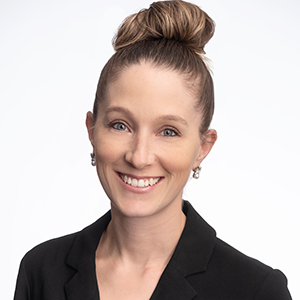

October 28-29
The Growth of Online Proctoring in Credentialing: Applications to High-Stakes Exams
Online proctoring continues to experience greater exposure and traction in the credentialing industry as the technology behind it advances to new levels and addresses concerns related to stability, security, and accessibility.
How do these advancements impact uptake for high-stakes credentialing programs? Is online proctoring an appropriate delivery mode for these programs? What are the security considerations to keep in mind as high stakes credentialing programs assess and consider this delivery method? What are the key elements to keep in mind and evaluate in terms of measurement equivalence for examinations administered through online proctoring in comparison to other test administration modalities?
These are important questions programs like the Association of Professional Engineers and Geoscientists of Alberta (APEGA), the College of Licensed Practical Nurses of Alberta (CLPNA) and the International Code Council (ICC) all needed to address as they introduced online proctoring for their credentialing programs. APEGA began using online proctoring almost 5 years ago as an option for the National Professional Practice Examination (NPPE). CLPNA just launched their Health Care Aid (HCA) certification program using online proctoring as the testing modality. ICC introduced online proctoring as an option for test takers in addition to brick and mortar test centres. These three credentialing programs, spanning different industry verticals, will share their experience in a panel discussion to address online proctored test delivery.
The panel will share how online proctoring and test center delivery compare but also how they differ, using key data points as it relates to exam performance. They will also discuss pros and cons for different delivery modalities to better understand the opportunities and risks associated with the adoption of online proctoring as a complementary or alternative approach for the delivery of high-stakes examinations. In addition, the panel will share why credentialing bodies should consider online proctoring as it will undeniably continue to be a growing part of the industry’s future.


Greg Pope
Director of Examinations
The Association of Professional Engineers and Geoscientists of Alberta (APEGA)

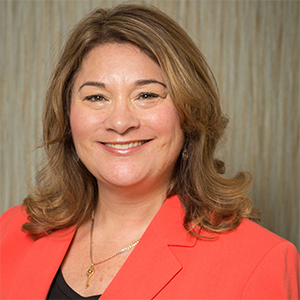
Testing Competence Through Scenario-Based Questions: The Good, Bad, and Ugly
Most self-regulated professions administer entry-to-practice exams to ensure that candidates entering the profession meet a minimum standard of competence and are deemed ready to practice safely and effectively. Multiple choice is arguably the most common format of assessment due to its cost-effectiveness and well-established evidence to support the validity and reliability of exam scores. Two major criticisms of multiple choice are that it is limited to the assessment of lower-order skills (e.g., recall of technical knowledge) and has low face validity (i.e., test takers view it as lacking relevance to the complex skills they are required to demonstrate on the job). These limitations are problematic for regulators who require assurance that new registrants not only demonstrate the requisite knowledge and technical skills to practise in their profession, but are also able to integrate and prioritize information in a short period of time and leverage clinical reasoning to make good decisions in the interest of public protection.
This session will discuss the use of scenario-based questions to assess higher-order skills such as clinical judgement and problem solving. Attendees will hear from three different credentialing programs that use scenario-based questions in their high-stakes exams. Each program will discuss their rationale for, and experiences with using this assessment format, as well as the exam development criteria established to maximize exam validity, reliability, and fairness. Specifically, the Canadian Alliance of Physiotherapy Regulators will discuss the use of vignette-based multiple-choice items; the National Dental Hygiene Certification Board will discuss the incorporation of clients’ charts, photographs and radiographs into their scenarios; and the Traditional Chinese Medicine Practitioners and Acupuncturists will discuss the use of multiple select and re-order questions in their scenarios. Attendees will learn about best practices in developing scenario-based questions, when they are appropriate, and the associated benefits and challenges of using this format.
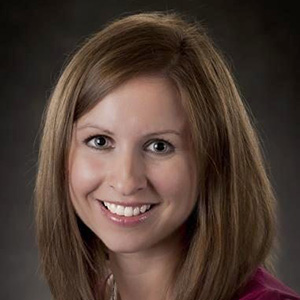


Sylvie Martel
Dental Hygiene Educator Consultant
National Dental Hygiene Certification Board of Canada

Jonathan Ho
Registrar & CEO
College of Traditional Chinese Medicine Practitioners and Acupuncturists of British Columbia
November 4-5
The COVID Impact: A Discussion Among Canadian Regulators
The regulatory community from east to west discusses the 360-impact of COVID-19. This distinguished panel explores recent pivots necessary in their regulatory work with focus on investigations, hearings, proctoring, and the financial impact in the wake of the pandemic.

Alyson Gaffney
Executive Director
CNAR

Denise Neutel
Director of Certification and Prior Learning Assessment
Canadian Society for Medical Laboratory Science
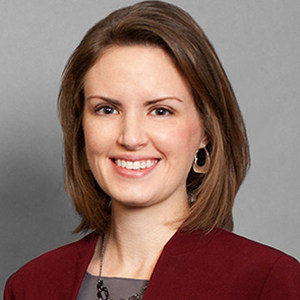


Jacqueline Messer-Lepage
Executive Director and Registrar
Saskatchewan College of Paramedics
Accessibility to All: Key Information for Online Decision Makers
With the passing of the Accessible Canada Act, more and more organizations are required to make their communications accessible. Legislation exists in several provinces, with more stringent requirements taking effect in Ontario in 2021. A major component of accessibility resides online: websites, video and other digital media need to be accessible to those with disabilities or who experience barriers.
This session will educate decision makers on many of the challenges organizations currently face in making their online communications accessible, addressing myths and assumptions that can lead to ineffective decisions. You’ll leave with a firmer understanding of the scope of what’s required to make your online communications accessibility compliant, strategies for how to assess and remediate them, recommended tools and more.
November 11-12
Effective Governance: Maximizing Innovation in the Absence of Legislative Change
The duty of every regulatory body and its council is to regulate in the public interest. How does a council achieve effective governance when its legislation presents barriers? There are a number of matters considered to be best practices in governance, including:
• the size of a council should not exceed 12 members;
• the number of professional and public members should be equal or the public members should be in the majority;
• the selection of the council should be based on competencies;
• and there should be a process to evaluate the effectiveness of the council and its members.
Despite a growing consensus on these best practices, provisions in the governing statute may mean that it is not possible in the short term to achieve a legislative change with respect to the size, composition and process for selection of council members.
Our panel will discuss various steps that can be taken to improve effective governance of regulatory bodies without legislative change. Deanna Williams will speak on best practices for effective governance of regulatory bodies, based on her experience in Canadian and international jurisdictions.
• Nancy Lum-Wilson, Registrar and CEO of the Ontario College of Pharmacists, will present on the changes OCP has made to move toward a competency-based Council with elected members who reflect the various populations served by their registrants.
• Lise Betteridge, Registrar and CEO of the Ontario College of Social Workers and Social Service Workers, will speak about the training the OCSWSSW has developed so that candidates for election to the Council better understand the mandate of the College and the duties of a Council member.
• Beth Deazeley, Registrar and CEO of the College of Early Childhood Educators, will discuss their process to evaluate the performance of their Council and its members and the recommendations of a recent governance review.
• Debbie Tarshis, legal counsel, will discuss why a Code of Conduct is essent ial to effective governance.
• Deanna Williams, President, Dundee Consulting Group Ltd. will speak on best practices for effective governance of regulatory bodies, based on her experience in Canadian and international jurisdictions.



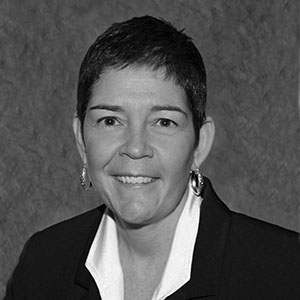
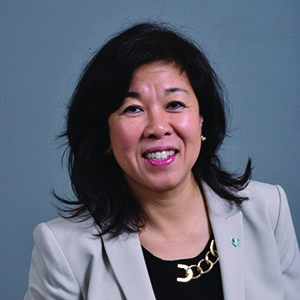
Able or Just Willing? A Discussion of the Evolving Role of Volunteers in Professional Regulation
The relationship between regulators and their volunteers is changing. Volunteers carry out some of the regulator’s most important functions, but are not always subject to commensurate levels of training, risk management, and oversight. With significant change in the governance of regulators coming (or already underway), it is the right time for all regulators to think critically about how they recruit, select, train, compensate, and evaluate their volunteers.
This session will address these issues and more. Topics discussed will include:
• Recent criticisms of regulators’ reliance on volunteers
• Skills-based approaches to recruiting and appointing volunteers
• Onboarding: codes of conduct and training
• Conflicts of interest and governance issues
• Improving and evaluating performance
• Offboarding: term limits and misconduct
• Public/government expectations, as expressed in recent legislative amendments and through other less formal means
The format of the session will be a presentation/panel discussion using examples and learned best practices, drawing on the hosts’ broad experiences in professional regulation. A portion of the session will be allotted for audience questions and participation.
November 18-19
Top Ten Cases
Keep current on the ten most significant professional regulation cases decided during the past year. Cases will cover all areas of professional regulation (e.g., registration, complaints, discipline). For each case you will not only find out what decision was made and why, but also the lessons regulators can learn from the cases. Trends in the judicial perspective on professional regulation will be identified. There is a difference between prominent and significant; some of the selected cases are crucially important even though you have not heard of them. Facilitated by Richard Steinecke, the three speakers (regulatory experts from Nova Scotia, Ontario and Alberta – Marjorie Hickey, Julie Maciura, and Jim Casey) will identify significant decisions from across the country. This fast-paced presentation will provide practical feedback from a neutral source (i.e., the courts) on how regulators are meeting their fairness and compliance obligations and will identify emerging areas of legal regulatory risk for the future.
Case Studies: Tips, Tricks, and Lessons Learned from Regulatory Reform Processes
Regulators are under increased scrutiny to ensure fair, transparent and accountable processes to meet their legislative mandate and expectations of government, stakeholders and the public. Join senior officers of three regulators – the College and Association of Registered Nurses of Alberta (CARNA), the Saskatchewan Registered Nurses Association (SRNA), and the College of Physicians and Surgeons of Alberta (CPSA) – as they discuss their recent experiences with regulatory reform. While each undertook a different approach, all have achieved increased transparency and accountability. CARNA underwent an external review of its conduct processes conducted by Harry Cayton – an international expert in professional regulation and former chief executive of the U.K.’s Professional Standards Authority (PSA). Based on the report’s recommendations, CARNA revised several processes. It has published the report, its implementation plan, and status reports. SRNA conducted a three-phase review of its complaints, investigations and discipline functions. This included assessing its performance against the PSA’s Standards of Good Regulation as well as conducting an onsite audit incorporating stakeholder and staff interviews. A report of the findings has been published. CPSA has worked to improve its processes within the complaints department. Utilizing internal evaluation and risk stratification measures, the CPSA has automated much of its complaint process, created opportunities for informal resolution, and enhanced its ability to identify “high risk” complaints. Complainant and physician satisfaction has increased.
Among many shared insights, participants will learn about:
– the challenges and triumphs each organization faced in modernizing its processes and improving oversight;
– how automation, risk profiling, and measuring impact helped improve the regulation of members, responses to complaints and the protection of the public;
– overcoming hurdles associated with organizational culture in implementing change; and
– how to breathe life into requirements of transparency and accountability.
This moderated discussion will be valuable for regulators of all disciplines and in all jurisdictions.

Michael Caffaro
Assistant Registrar and Complaints Director
College of Physicians & Surgeons of Alberta

David Kay
Chief Professional Conduct Officer
College and Association of Registered Nurses of Alberta


November 25-26
Regulators are Employers Too: Employment in the Age of COVID-19
A regulator has many functions. We often hear about regulators’ gatekeeping function and discipline function vis-à-vis their applicants and members, or about their governance issues vis-à-vis their boards of directors or councils. However, we don’t often hear about their function as employers vis-à-vis their own staff. And yet, human resources issues are incredibly important to regulators. These issues can have a huge impact on a regulator’s ability to meet its overarching public interest mandate, mostly because it is well understood that engaged employees will produce better results. Conversely, a mishandling of human resources issues can affect the regulator’s risk profile in significant ways. In this session, the panelists plan to explore these issues in the context of the COVID-19 pandemic.
PechaKucha Series/Closing Remarks
How will Courts Review Tribunal Decisions? A PechaKucha on the Supreme Court of Canada’s Decision in Canada (Citizenship and Immigration v. Vavilov)
Through the PechaKucha format, I will explain the Supreme Court of Canada’s Decision in Canada (Citizenship and Immigration v. Vavilov and summarize how Courts will review tribunal decisions, including an illustration of the difference between correctness and reasonableness standards, a summary of how the standard will be determined, and an explanation of how tribunals can earn or lose the deference that courts will show them.
What Makes a Good Decision-Maker?: A Top 10 List
Many aspects of professional regulation involve exercising a legal authority to make decisions that require balancing members’ interests and the public interest: evaluation applications for registration; disposing of complaints and reports about members; adjudicating discipline allegations, or a member’s fitness to practise; and so on. What qualities do members, staff of the regulator, and others look for in such decision-makers? This presentation will offer a “Top 10 List” — Fairness, Impartiality, Open-Mindedness, Empathy, Attentiveness, Adaptability, Timeliness, Decisiveness, Rigour and Discretion — and explore how these qualities help instill confidence in the regulator, on the part of both the profession and the public.
The Great Six-Minute Debate – Is Mediation Under Utilized in Regulatory Complaints
Should regulators deal with complaints through alternative dispute resolution (ADR) mechanisms such as mediation? Most regulators have the legislated authority to manage complaints in a manner other than investigation but avoid doing so for a variety of reasons. In some cases, regulators have attempted implementing an ADR program and given up, citing lack of interest by complainants or registrants. This debate will look at both sides of the question. One speaker will make the case for and the other against. Can a cogent argument for the benefits of ADR to the public, registrants and the regulator be articulated in 3 minutes? Can the arguments against these processes be made in 3 minutes? In a “point / counter point” fashion the two speakers will do their best to persuade the audience their respective argument is best.
The Devil is in the Details: Transitioning to Larger Groupings of Regulatory Bodies is a Bigger Challenge Than You Might Think
Amalgamating professional regulators under one umbrella agency, as recently proposed in British Columbia, could prove to be much more difficult than anticipated. In addition to the obvious issues of contractual arrangements involving staff, office space and vendors, there are also a wide range of other challenging aspects for provincially-based entities involving such matters as “national” professional requirements entered into previously for entry-to-practice examinations, language proficiency standards, memoranda of understanding, national professional competencies and standards and representation by individual amalgamated professional regulators on national alliance boards of regulators. In this session, participants will learn of some of the vital issues which will need to be addressed by governments and regulators in order to keep the public interest protected and to make the transition to new large r regulatory entities viable and effective. Solutions to some of the challenges and who should implement them will be advanced and examined.
Regulating in the Public and/or Privacy Interest?
Regulators are often in a position where they must navigate the tension that arises between the need for public transparency and accountability on the one hand, and privacy and confidentiality on the other. This presentation will provide a brief overview of developments in privacy law pertinent to the regulatory sphere and explore where and how conflicts arise. Many self-governing professions have legislation containing provisions regarding a mandatory “duty to report” for members and employers in various situations. Other legislation like the Personal Health Information Protection Act, 2004, also has mandatory reporting requirements. These provisions can require members of regulated professions, operators of facilities where members practice, employers of members, and/or health information custodians to report to the College or regulator where they have reasonable grounds to believe another member has engaged in certain kinds of professional misconduct. Failure to make a mandatory report is an offence punishable by significant fines. However, the requirement to report can engage questions of privacy and confidentiality, including: What is the threshold for information to be considered ‘reasonable grounds’ to report? If there is not sufficient information to constitute ‘reasonable grounds’, could a reporter be found guilty of professional misconduct? How does the duty to report intersect with the rights of others to privacy, especially given there may be a requirement to publish information regarding allegations on the public register? In circumstances of a report based on false information, might a member be liable in tort? The Supreme Court has recently recognized a new privacy tort in Yenovkian v. Gulian (December 19, 2019) of “publicity placing a person in a false light” – how might this tort be used? A review of recent case law and legislation will speak to these questions, and consider how this landscape may continue to evolve.

Lonny Rosen
Partner
Rosen Sunshine LLP

Aaron Dantowitz
Partner
Stockwoods LLP

Jeremy Quesnelle
Deputy Registrar
College of Naturopaths of Ontario

Dean Benard
President
Benard + Associates

Cathi Mietkiewicz
Principal Lawyer
Mietkiewicz Law

Brian O'Riordan
Registrar
College of Audiologists and Speech-Language Pathologists of Ontario

